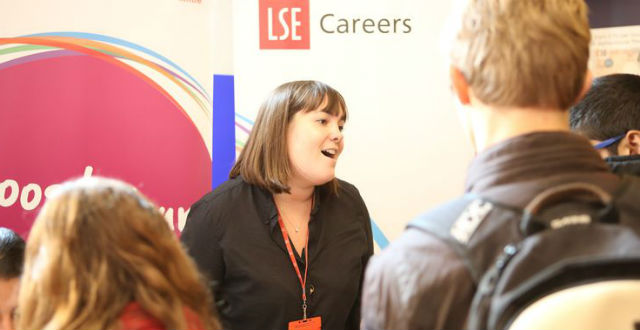As a post-graduate student moving from full-time work to academia, it was very important for me to continuously build on my past experiences. Over the years, I had worked as an entrepreneur, an educator, a teacher trainer, and a journalist — all of which I loved and thoroughly enjoyed. So when I arrived at LSE, I began looking for meaningful work — something that aligned with my skills, challenged me to learn and grow and allowed me to give back to society.
On one such quest of finding meaningful work, I came across LSE’s Widening Participation project. The project had caught my eye primarily because of the purpose it aimed to serve: encouraging students from London state schools to achieve their potential and help them fulfil their aspirations. The WP program also aligned with my skills and past experiences. As a Teach For India Fellow, I had taught in a low-budget private school in Delhi, India, for two years. Working with young students had not only been enjoyable, but also a lesson in humility: their creativity, compassion and resilience was (and continues to be) awe-inspiring. Thus, I applied to be a Mentor on LSE’s Widening Participation Programme. (The process is simple: it primarily includes an application, an interview — and training, if you are selected. You can find more details here.)
As a Mentor, I get to spend an hour with four students from a London state school every week — for 10 weeks. I speak with my mentees about their goals, academic challenges and their aspirations for higher education. We also engage in a range of learning, confidence-building activities. For example, one of the activities we did was a role-play. In teams of two, my mentees enacted an interview. While one person played the role of an interviewer, another appeared as the interviewee and the third was the evaluator for the activity. It was incredible to see students come up with answers on the spot. It was also quite amazing to see the student enacting the evaluator’s role provide feedback. The evaluators had observed interviewee’s body language, length of answers, lack of evidence in certain responses and more. The most impressive bit was the group drawing parallels between a small-group activity and future interviews!
It would suffice to say that working as a Mentor has been meaningful. And if social inclusion, mobility and education is something of your interest, I would recommend that you check out WP team’s work.
There are other opportunities to do meaningful work as well. A good place to begin looking is LSE’s Volunteering Centre. The Volunteering Centre’s website features activities ranging from one-off volunteering to those with longer commitments. You can also meet one of the volunteer managers in case you would like to speak to someone in-person!





